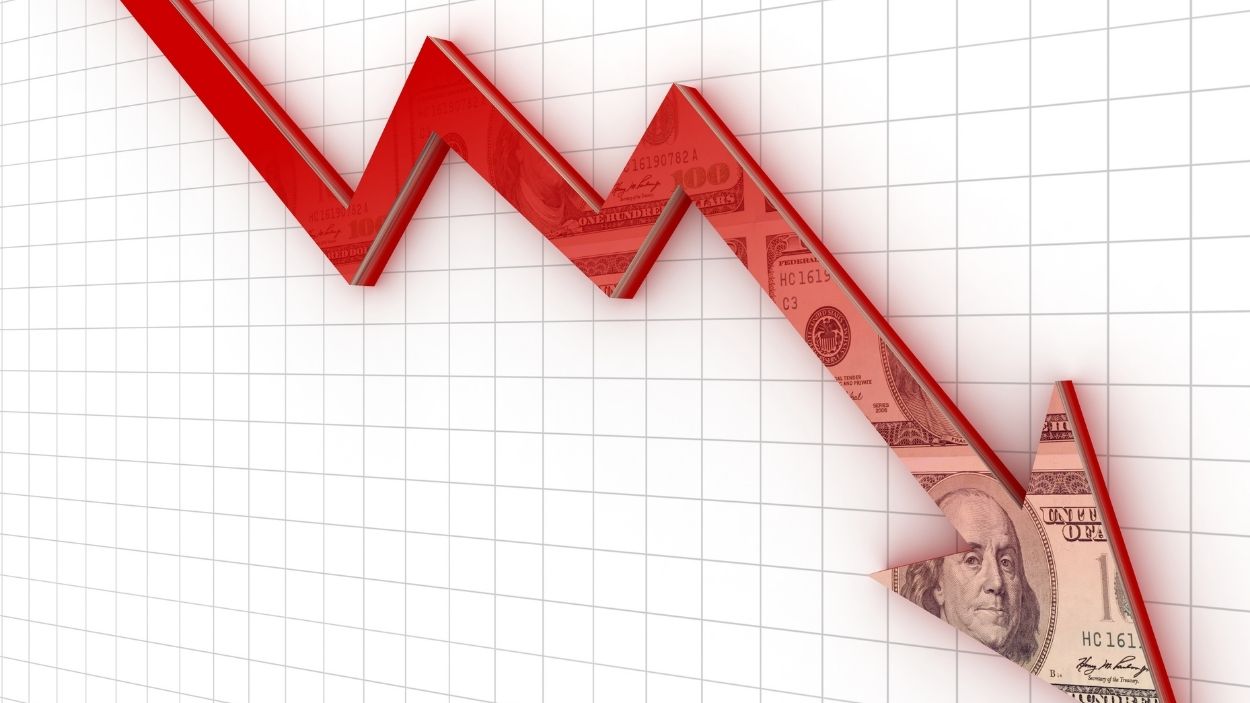The economy is like a living ecosystem that is always changing. It changes in unpredictable, sometimes from one year to the next it can look very different. Preparing for a recession is not easy.
What Is A Recession?
Before preparing for a recession lets define recession.
we should know that can we predict it? As much as we’d like to be able to tell when a recession is coming, it’s hard, almost impossible, to do so. Even economists with a lot of experience can’t tell what will happen with this. In May 2007, Ben Bernanke, who was in charge of the Federal Reserve, said that mortgage defaults wouldn’t hurt the U.S. economy too much. That prediction hasn’t held up well over time. When an economy shrinks for two quarters in a row, this is often called a recession. A recession is “a significant drop in economic activity across the economy that lasts more than a few months and is usually seen in GDP, income, employment, industrial production, and wholesale-retail sales.”
This definition makes it clear that recessions are very bad for people’s daily lives and finances, causing things like layoffs, unemployment, price increases, and shortages.
All of these things happened during the Great Recession of 2008, which was the worst economic downturn anyone alive at the time could remember.
Can We Predict Recessions?
Before preparing for a recession we should know that can we predict it? As much as we’d like to be able to tell when a recession is coming, it’s hard, almost impossible, to do so. Even economists with a lot of experience can’t tell what will happen with this. In May 2007, Ben Bernanke, who was in charge of the Federal Reserve, said that mortgage defaults wouldn’t hurt the U.S. economy too much. That prediction hasn’t held up well over time.
It’s hard to predict recessions, and it’s almost impossible to know how a recession will affect you. A recession doesn’t have to destroy the value of your investments or make you lose your job. Prices may go up, but it’s hard to tell if that will change what you usually buy.
Some people can get through a recession without much trouble, while others suffer a lot. Just like the market, these things are always hard to predict.
Preparing for a Recession
Being ready for a slowdown means having enough money to take care of yourself and your family if your current situation has to change. Here are a few suggestions:
Set up a fund for emergencies.
The most important thing you can do to get ready for the next rough patch is to save up a lot of money to use as an emergency fund. Experts say that you should keep 3–6 months’ worth of living costs in a high-interest savings account. This money should be sacred. You shouldn’t touch it unless you have to, like if you lose your job or have to work fewer hours than usual.
A recession can make it even harder to find a new job at the same salary if you lose your job. If the economy is slow, it may be hard to get hired again at the same salary. When you do find a new job, you may have to take a pay cut or work more hours for the same pay. If you don’t have savings to make up the difference, this will put a strain on your finances.
Examine your expenses
Since an emergency fund can only help you so much if you lose your job or get a pay cut, it’s best to make sure you live as frugally as possible before the worst happens.
Make it a habit to sit down with your family and look at how you spend your money to see where you can cut back. Some things that could be cut are going out to eat, buying expensive clothes or gifts, spending more on hobbies, and taking extra trips.
Pay down debt
When the economy is doing well, working to pay down debt is like doing yourself a favour. You can pay off your debts faster if you start making extra payments while things are going well. If your debt is too much to handle, you could consolidate your loans to get a lower average interest rate or go to credit counselling. Getting a handle on your debt payments is important because having good credit will help you weather future financial storms.
The “debt snowball” method is a popular way to pay off debt. This method has you pay off your smallest loans first so you can feel good about yourself and be more motivated to pay off your bigger loans. The “debt avalanche” method is another choice. With this method, you pay off the loan with the highest interest rate first, no matter how small it is, and work your way down to the loan with the lowest interest rate.
Gain employment and side-hustle skills
People worry most about losing their jobs when there is a recession. When the economy goes down, people often lose their jobs, and it can be hard to find a new job when no one is hiring. While the economy is doing well, it’s a good idea to get some in-demand skills or credentials to make yourself more marketable in case you need to look for a new job when the economy is bad.
You could also learn skills that you can use as a freelancer, so that if your main source of income runs out, you can find smaller jobs to keep you going. Once you have these skills, you can use them to make extra money that you can put in an emergency fund or use to pay off more of your debt.
Set up a way to get more credit
Along with improving your job skills, it can be a good idea to build up your savings in case you need them in the future. A home equity line of credit or some new credit cards with higher limits can help you get more credit. Don’t use these resources until you have to.
If you already have credit card debt, it’s better to pay it off as quickly as you can so you can get more credit than to apply for new credit cards. Another good way to improve your credit and lower your average interest rate is to consolidate your credit card debt with a personal loan that lets you do so.
Keep Investing
Before a recession hits, you should look over your investment portfolio to make sure it has the right amount of risk for you. How much risk you want to take depends on your personality and where you are in life. People who are getting close to retirement will want to be much more careful with their investments than people who are younger.
Don’t stop investing once you’ve changed how risky your investments are. Almost certainly, the market will go up again, so it’s not a good idea to pull out all your money at the first sign of trouble. Even if the market goes down, you might want to stay the cou rse and buy shares in a diversified mix of assets.
If you follow all of this advice, you’ll be in the best position possible when the next recession hits. The most important thing you can do to protect yourself from a recession is to make your finances more stable and flexible.
Preparing for a recession is not 100% possible but we can take given measures.
Also Read
What Are Emergency Funds? How Much Emergency Funds We Should Have?


